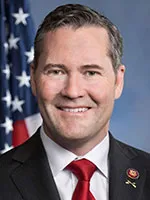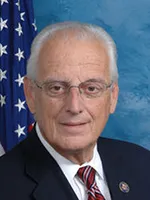Senior Reporter
House Lawmakers Introduce Bill to Protect Moving Privacy

[Stay on top of transportation news: Get TTNews in your inbox.]
Legislation meant to safeguard certain identifiable information of individuals moving internationally was recently introduced in the U.S. House of Representatives.
This month, Reps. Mike Waltz (R-Fla.) and Bill Pascrell (D-N.J.) introduced the bipartisan Moving Americans Privacy Protection Act.
The bill would require U.S. Customs and Border Protection to remove personally identifiable information from cargo manifests before public disclosure. Such information includes Social Security and passport numbers. The measure is specific to individuals moving internationally with household goods.
“The personal information of every American should be safe and secure,” said Waltz, a member of the Armed Services Committee, on March 10. “However, due to the current public disclosure of cargo manifests, our service members and their families experience a higher risk of identity theft and fraud as they move abroad.”
“It is critical we take the necessary steps to protect them against dangerous and fraudulent activity,” the Florida Republican added. “That’s why I am proud to introduce legislation in the House to secure international travel and help safeguard the livelihoods of Americans.”

Waltz
“In the modern world, protecting privacy is a difficult, constantly evolving challenge. This is especially true for our brave servicemembers protecting America’s interests abroad who are increasingly victims of identity theft,” observed Pascrell, a member of the Ways and Means panel on tax policy. “This common-sense measure would protect Americans from accidentally having their own information end up in the wrong hands. I am proud to co-lead this bipartisan legislation designed to support our servicemembers and their families.”
According to background information about the bill its sponsors provided, “In recent years, [personally identifiable information] of relocating individuals has been released, enabling identity theft, credit card fraud and unwanted solicitations. [U.S. Customs and Border Protection] does offer a process for consumers of shipping services to make their information confidential. However, these forms [typically] take two months to process and are often processed after the individual has moved. Consumers should not have to request the confidentiality of their [personally identifiable information], it should be the default.”

Pascrell
“This legislation would simply amend the manifest disclosure process to explicitly require the removal of individuals’ [personally identifiable information], such as names, addresses, Social Security numbers, and passport numbers,” per the background about the bill.
The bill’s consideration in the GOP-led chamber has yet to be scheduled by floor managers.
On the other side of the Capitol, Sens. Steve Daines (R-Mont.) and Gary Peters (D-Mich.) introduced a Senate-passed version of the bill. The chamber, led by Democrats, approved the measure on March 9.
“Montanans’ private, personal information should never be jeopardized just because they’re moving or traveling abroad. Safeguarding Americans from identity theft and fraud is a top priority of mine. I’m glad to see my common-sense, bipartisan bill pass the U.S. Senate,” Daines said soon after the bill’s passage. He is a member of the Finance Committee on tax policy.
Want more news? Listen to today's daily briefing above or go here for more info
“Identify theft is costly and disruptive to the lives of people in Michigan and across the country,” noted Peters, chairman of the Homeland Security and Governmental Affairs Committee. “Removing sensitive personal information from manifests will help protect Americans who are moving back from abroad from fraud, while maintaining safe and secure international travel and trade.”
Key stakeholders are endorsing the bipartisan legislation. “Americans shouldn’t be at increased risk of identity theft because they are returning home after an overseas military deployment or job posting,” Ryan Bowley, executive director of American Trucking Associations’ Moving and Storage Conference, said in a statement accompanying the bill’s introduction.
“This legislation will address this long-standing problem by ensuring the government is not inadvertently enabling the sale of personal information to data brokers or those with ill intent. Americans trust movers to move the household goods, and we thank Rep. Waltz and Rep. Pascrell for working to protect the privacy and security of Americans’ personal data,” Bowley added.




